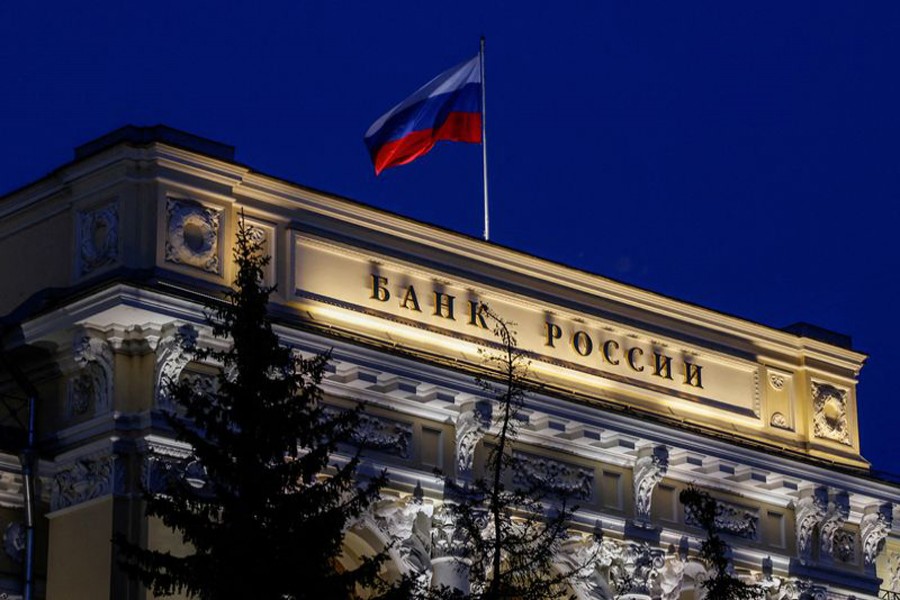Russia's central bank has slashed its key interest rate to 11 per cent and said it saw room for more cuts this year, as inflation slows from more than 20-year highs and the economy heads towards a contraction.
It announced the move on Thursday, which followed two previous 300 basis point cuts which took the rate to 14 per cent, at an extraordinary meeting.
The bank has been gradually reversing an emergency rate hike to 20 per cent in late February that was triggered by Russia's Feb. 24 move to send tens of thousands of troops into Ukraine and the imposition of Western sanctions in response, reports Reuters.
Governor Elvira Nabiullina said inflationary risks were easing, but warned that the economy was entering a period of structural transformation and that banks needed additional capital support.
Inflation expectations of households and businesses are falling, she told a banking conference in Moscow, helping to significantly lower inflationary risks.
The rouble's recent appreciation to multi-year highs has had a significant, if temporary, disinflationary impact, she said.
The Russian currency has been supported this year by capital controls imposed in late February to cap financial stability risks and defend the economy against sweeping western sanctions.
"Thanks to these factors, inflation is falling faster than we expected," Nabiullina said. "This allows us to lower the key rate today without creating new pro-inflationary risks."
"We allow for the possibility of further easing of the key rate at upcoming meetings."
RISKS ARE EASING
The central bank said external conditions for the Russian economy are still challenging but financial stability risks have somewhat decreased, opening room for easing of some capital control measures.
"The first months (since February) were a time for tactical decisions: we had to counteract the first sanctions shock," Nabiullina said. "We managed to protect financial stability and not allow an inflation spiral to unfold.
"But this, of course, absolutely does not mean that we can breathe easily."
The rouble's performance has "given policymakers room to reverse emergency measures introduced since February", Capital Economics analysts said in a note.
"We suspect that the CBR won't continue this pace of easing ... A further easing of capital controls and additional rate cuts seem likely," they said.
The rouble extended intraday losses as Nabiullina spoke, sliding to 63.41 against the dollar, down 6.9 per cent on the day.
The central bank could cut its key rate further by 50-100 basis points at the next rate-setting meeting scheduled for June 10, said Dmitry Polevoy, head of investment at LockoInvest.
Deputy Prime Minister Yuri Borisov said Russia needed cheap money and monetary policy that does not solely aim to curb inflation, hoping the central bank was embarking on a new trend.
"I would have liked to have (the rate) at 6-8 per cent today," he said.
INFLATION FORECAST
Nabiullina said the bank would adjust its 2022 inflation forecast, which previously stood at 18-23 per cent, adding that inflation would slow to 5-7 per cent in 2023 before reaching its 4 per cent target in 2024.
Inflation is hovering near its highest since early 2002, although May 20's reading of 17.51 per cent marked a decline from 17.69 per cent a week earlier, reflecting a fall in consumer activity.
High inflation dents living standards and has been one of the key concerns among Russians for years.
On Wednesday, President Vladimir Putin ordered 10 per cent rises in pensions and the minimum wage to cushion Russians from inflation.
He denied the country's economic problems were all linked to what Moscow calls its "special military operation" in Ukraine, which has prompted the West to impose unprecedented sanctions against Russian banks, companies, business leaders and figures close to the Kremlin.


